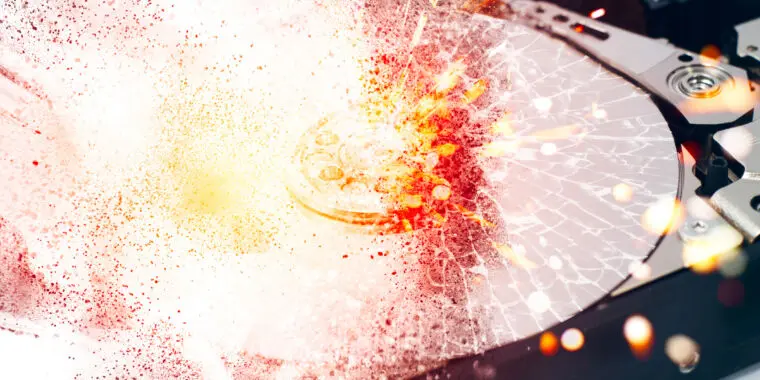My father told me he wanted to make USB flash drives of all the scanned and digitized family photos and other assorted letters and mementos. He planned to distribute them to all family members hoping that at least one set would survive. When I explained that they ought to be recipes to new media every N number of years or risk deteriorating or becoming unreadable (like a floppy disk when you have no floppy drive), he was genuinely shocked. He lost interest in the project that he’d thought was so bullet proof.



Im really hoping, waiting, for a good dense long-term storage medium. It doesn’t have to be fast, but large, cheap, and durable. I want a way to backup my plex library, or even, daily backups of documents and project files, and I don’t want to think about them ever again.
It does has to be fast enough that you can transfer the files to a different disk within your lifetime.
Tape is cheap and durable if you store it properly. Except the tape drive is expensive af.
Microsoft is working on glass storage. A glass plate can last 10,000 years according to Microsoft. Hopefully that tech will get miniaturized and available to consumers within our lifetimes.
As a former audio engineer in the days where we still used it- tape can rot.
im not an audio engineer, but people didnt know this???
It seemed like the person I was talking to didn’t. The implication was that tape was viable as long-term storage. It isn’t. I’ve seen tapes rot after a year. DATs were especially prone to that, but even things like 2" multitrack audio tape can go bad that quickly.
Check out Cerabyte its for deep archinval storage
Punch cards? Stored correctly there’s no reason they couldn’t last many human lifetimes. But… Yeah it’ll take a while to encode everything.
I would have thought that with modern technology we could come up with something like punch cards but more space/time efficient. Physical storage of data - only one write cycle of course, but extremely durable. Even just the same system as punch cards but using tiny, tiny holes very close together on a roll of paper. Could be punched or read by a machine at high speed (compared to a regular punch card, presumably still Ber slow compared to flash media).
Paper doesn’t last centuries. Anyway, punched cards don’t have a storage density that’s adequate for modern data volumes. You need something that’ll durably store nanometre-sized marks.
Yes that’s what I’m thinking, some modernised physical data storage technique.
It certainly would make planning the dang home lab easier. Im in a small place! I don’t have room for all the stuff i wanna play with!
Do optical disks degrade if protected from the elements? A stack of Blu-ray disks could store quite a bit.
The commonly used optical disk technologies degrade over time. CD-RW more rapidly than CDR. It’s even worse for higher-density media.
And for bigger data sets, the capacity isn’t there. And writable media is getting more rare. Probably because of the same reason.
Depends on the disk technologies.
CDs are prone to flaking, otherwise most disk are suspectible of oxidation (disk rot) if stored improperly. M-Disk is a long-life variant of both DVDs and Blu-Rays, although more expensive. However, write-once disks are very ransomware-resilient, and I recommend to add a write-once media to any proper backup setup.
M-Disk is rated to last like
1001000 years. They are also working on a 125 Terabyte CD. Optical storage is the way to go.so they’ve solved bitrot? nice
Well yeah but BluRay is still much more expensive and smaller capacity. Lets hope this new 125TB disk works out
The main cause of bitrot in older disks is the organic dyes fading (aside from REALLY cheap disks where delamination was a problem), whereas M-Disc uses an inorganic carbon material
TIL, thanks!
Was it sapphire or something? But one and done. I wonder if you could just keep writing and just “cross-out” the old stuff with that kind of capacity.
Not sure what sapphire means, but here is the article. Just appending records and differential backups would seem to be the way to go.
Sapphire was one of the materials being researched for optical data storage, once upon a time.
“Chinese researchers …”
OK.
M-Disc is rated to last 1000 years.
I think you’re looking for stone tablets.
Archive discs are that but not exactly cheap.
deleted by creator